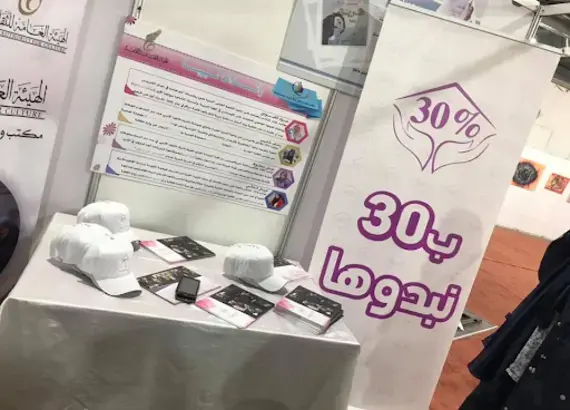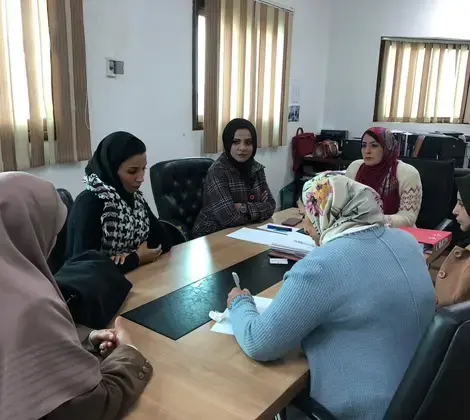
Success Story
Libyan Ministry of Culture Approves Decree for 30% Gender Quota
Despite the hard work of Libyan women to advance their own interests, women remain marginalized in many segments of Libyan society today, with historical gender norms and power dynamics continuing to affect their access to political participation in particular. That said, the severe political exclusion of women under Gaddafi’s rule has improved since his ouster. During the 2012 elections that established the General National Congress (GNC), women won 16.5% of seats (33 representatives out of 200). However, progress on raising women’s participation has been slow as barriers such as public scrutiny, challenges incapacity, and cultural resistance to women’s participation persist. Now, NDI’s partner civil society organizations have formed a coalition called the 30% Quota Campaign to advocate for greater political participation for women in Libya.
Since 2018, NDI has worked with the 30% Quota Campaign towards improving women’s representation in Libyan politics and advocating for the eponymous goal of establishing a quota of 30% representation of women at all levels of government. The campaign is made up of five organizations from Benghazi, Zuwara, and Tripoli, with a core team of nine women, and was formed to bring together a broad coalition of Libyan activists to pressure decision-makers to move one closer to gender parity one step at a time.
Throughout its partnership with the 30% Quota Campaign, NDI has provided a wide range of technical assistance and strategic guidance to the group, including support in developing and executing a work plan that outlines the realization of their vision for a more inclusive political landscape in Libya. NDI has focused on providing technical skills in both social media and traditional media, coalition building, and negotiation to improve the coalition’s advocacy efforts overall. In particular, developing strategies for engaging existing Women’s Empowerment Units within ministries across the Libyan government has been central in this partnership, as advocacy for such reforms at the ministerial level involves a rigorous proposal process. This February, despite a fragile security situation, the campaign’s hard work saw its first institutional success.

Members of the 30% Quota Campaign at an NDI training
As a direct result of the campaign’s lobbying efforts, the Minister of Culture issued a decree on February 26 requiring no less than 30% women’s representation in leadership positions in the Ministry and its affiliated entities. The decree also affirmed the Ministry’s support for women’s participation in planning and developing the Ministry’s strategies and policies. Since their first meeting with campaign members in December 2019, the Minister of Culture has been supportive of the campaign’s message and goals and has been working in good faith to take action towards more gender-inclusive policymaking and operations. This announcement made the Ministry of Culture the first institution in Libya to commit to complete adherence to the quota.
The Ministry of Culture’s announcement marks a huge step forward for the campaign, especially as they were one of the first government bodies that the campaign directly approached about the implementation of a 30% quota. NDI will be working closely with the campaign in the coming months, continuing to provide guidance and technical assistance, to capitalize on this momentum. Moving forward, as the first institution to take concrete action to increase the representation of women in politics, the Ministry of Culture will stand as an example to its peer institutions and sets a precedent as the 30% Quota Campaign continues to push Libyan decision-makers towards a vision of more inclusive and democratic governance in Libya overall.



